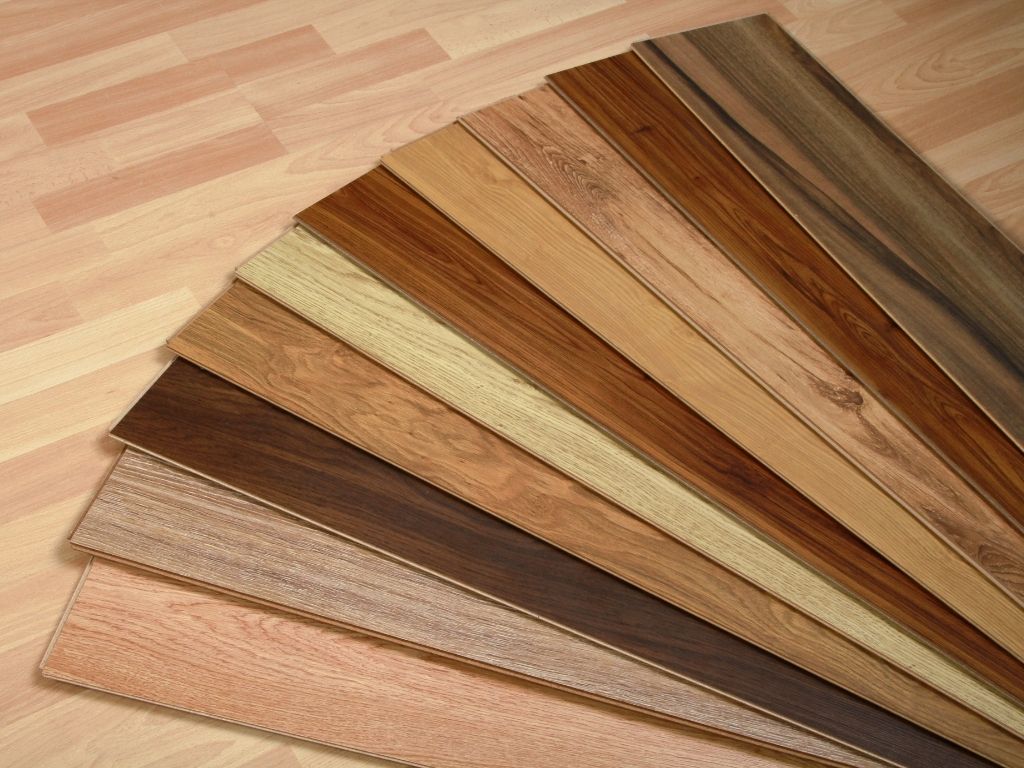You may not think much about flooring when you’re selling your home, but it plays a big factor. Many sellers focus on the walls, ceilings, and the home’s features, forgetting about the floor. While it’s not a focal point, it sets the tone for the room.
Broken, outdated, or ugly flooring could decrease a home’s value. But by how much? We look at how flooring affects your home’s value below.
Hardwood Floors Reign Supreme
It’s probably no surprise to learn that hardwood floors are what buyers want. Some realtors suggest that homes with hardwood floors sell for 10 percent more than homes without them. Of course, the hardwood floor’s condition and even type or color will determine if buyers pay more for the home or not, but just knowing the value of hardwood floors may help.
This doesn’t mean you need hardwood floors throughout the home. Buyers want them in key areas – usually the kitchen, hallways, and living areas. They want continuity, but carpeting or other flooring options are usually acceptable on upper levels or in bedrooms.
What’s The ROI On Hardwood Floors?
Most hardwood floors (not all) have a 70 to 80 percent return on investment. With a cost of $10 – $19 a square foot, it’s quite an investment, but one that you’ll see pay off when you sell the home if they’re kept in good condition.
What Are Hardwood Alternatives?
Not all homeowners can afford hardwood and some just don’t want it. Fortunately, other flooring options offer a decent return on your investment and help your home’s value including:
- Tile
- Stone
- Marble
Tile, stone, and marble can be cheaper or more expensive than hardwood. It depends on the type you choose. But you’re looking at $11 – $24 per square foot. They are great options in areas where water or moisture is a concern and they usually have at least a 70 percent return on investment too.
Flooring That Doesn’t Improve Your Home Value
Not all flooring improves your home’s value but may look nice or be the look you’re after. Vinyl and linoleum many mimic the hardwood look but at a mere fraction of the price. Vinyl and linoleum can take on the look of almost any type of flooring and the cost starts at just $2 per square foot. As far as ROI, though, you won’t see much.
Other Ways Flooring Affects Your Home’s Value
The type of flooring plays an important role in your home’s value, but these factors matter too:
- Excessive wear and tear – Buyers look at the home’s appeal. If they walk in and the flooring is ripped, torn, or otherwise ruined, buyers won’t be impressed. You’ll have a harder time selling the home, and will likely get less than the amount you want for the home.
- Stained carpets – Carpeting belongs in certain areas of the home and if it flows, it may help your home’s value. But, if the carpet is in poor condition, it won’t help and will likely hurt the home’s value. Look at the carpet with a critical eye. Is it clean? Does it look fresh? Does it look inviting? If not, you may want to replace it.
- Hardwood floor conditions – Just because you have hardwood floors doesn’t mean your home will be worth more. They need to be in great condition. A few repairs and/or conditioning may be all the floor needs, but make sure before you put it on the market. If it’s warped, excessively scratched, or damaged, replacing it may be worth the cost and time.
Factors To Consider Before Choosing Hardwood Floors
Before you install hardwood floors in your home to get the higher value, consider this:
- Not all hardwood floors add to the home’s value. If you choose something exotic and that’s more of a personal taste rather than the ‘norm’ it may not help your home’s value or increase its popularity. Instead, talk to a local real estate agent about what buyers like today before investing in new flooring.
- Are other improvements more important? Flooring is important, but so are other areas you can fix in the home. If your kitchen isn’t updated, appliances are worn down, or the bathrooms need a complete overhaul, you may want to spend the money there instead of the floors. While you can fix up the floors or install ‘cheaper’ options, investing in hardwood floors won’t make old or outdated kitchens or bathrooms look better.
- Make sure the ROI is there. Don’t assume every hardwood floor will give a great ROI. Talk to an appraiser or flooring expert and find out what the choices you’re making will do for the home’s value. You won’t ever see a dollar-for-dollar increase, but you may see a significant improvement if you make the right choices.
Will Your Home Value Change?
Flooring can be the one factor that makes or breaks your investment. It could make you a lot more money or cost you a sale because no one likes it.
Don’t jump in headfirst and buy the most expensive floor though, that’s not how it works. Know your audience, know what they like, and see how it works into your budget. Look at the big picture too.
What’s the rest of your house look like? Aer there other renovations or repairs you should make? How does that work into your budget? If you don’t have the money for hardwood floors and the other renovations, consider cheaper flooring and the other renovations for the best outcome.

